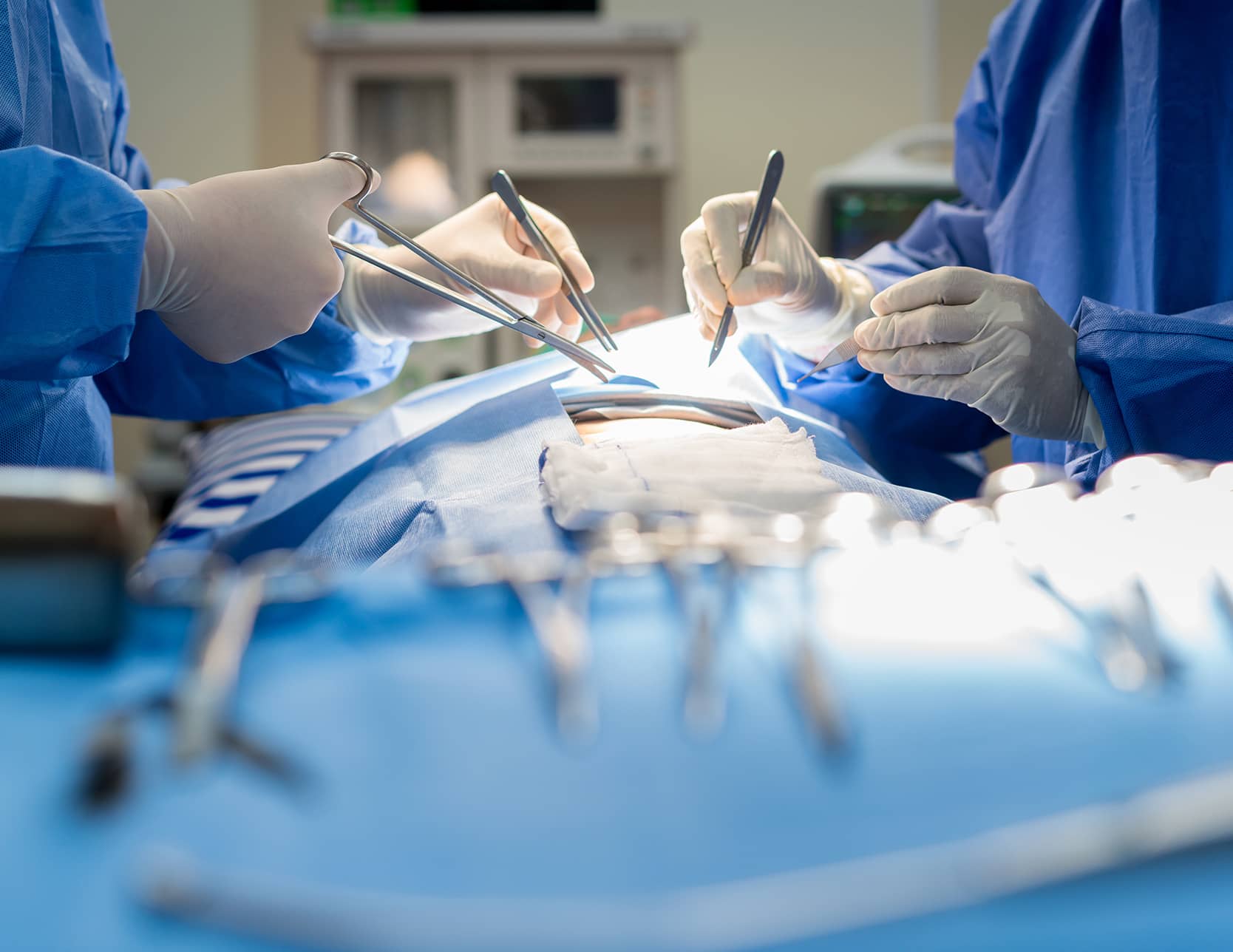Hip Prosthesis Replacement- Surgery
The goal of a hip prosthesis revision is to restore a stable, mobile, and pain-free joint. The operation is preceded by a complete imaging assessment to evaluate the positioning of the implants, the quality of their bone anchorage, and the tone of the periarticular muscles. The choice of the surgical approach and technique depends on the surgical indication as well as the hip’s surgical history.

Duration of the Operation for a Hip Prosthesis Replacement
The duration of a hip prosthesis revision can vary greatly, depending on whether it is a simple unipolar change or a complex revision: from 90 minutes to more than 4 hours. In cases of bone defect, reconstruction is considered using grafts or trabecular metal wedges. Osteosynthesis (plate, screws, hooks) is sometimes proposed to achieve bone consolidation. A long, or even extra-long stem is useful for reconstructing bone anchors in cases of extensive osteolysis. Ceramic-on-ceramic articulation is preferred in younger patients, while a dual mobility articulation is justified in older patients. The precision of the anatomical reconstruction is a critical element for the success of this surgery, for which custom implants (custom-made prostheses) are sometimes used.
Healing
The postoperative period allows for the healing of tissues, bone consolidation, and osseointegration of the implants. Rehabilitation instructions vary depending on the situation: whether weight-bearing is allowed or not, free or guided mobilization for 6 to 8 weeks depending on the surgical approach and the procedures performed. The final prognosis also depends on the patient’s and their physiotherapist’s adherence to the surgical recommendations. It often takes 3 to 6 months to achieve a complete result after a hip prosthesis revision, with the possibility of resuming sports if the hip has regained optimal mechanical conditions.